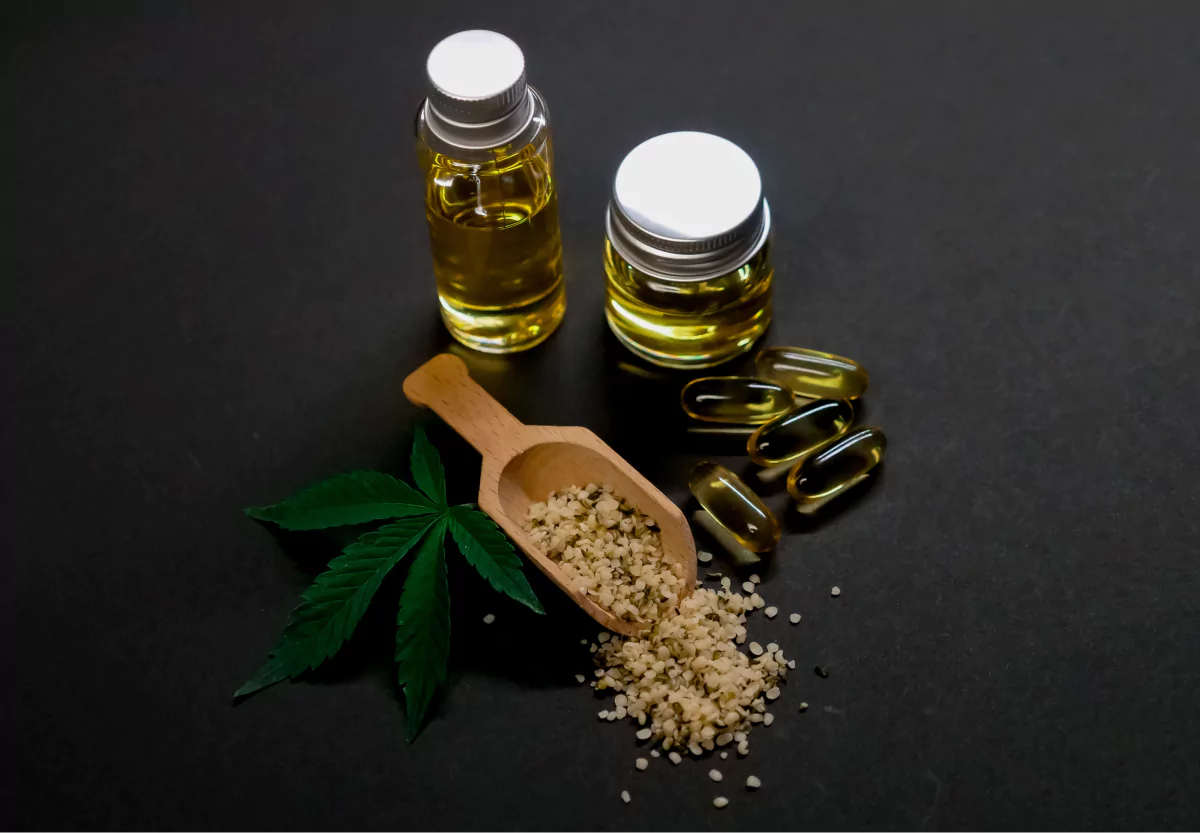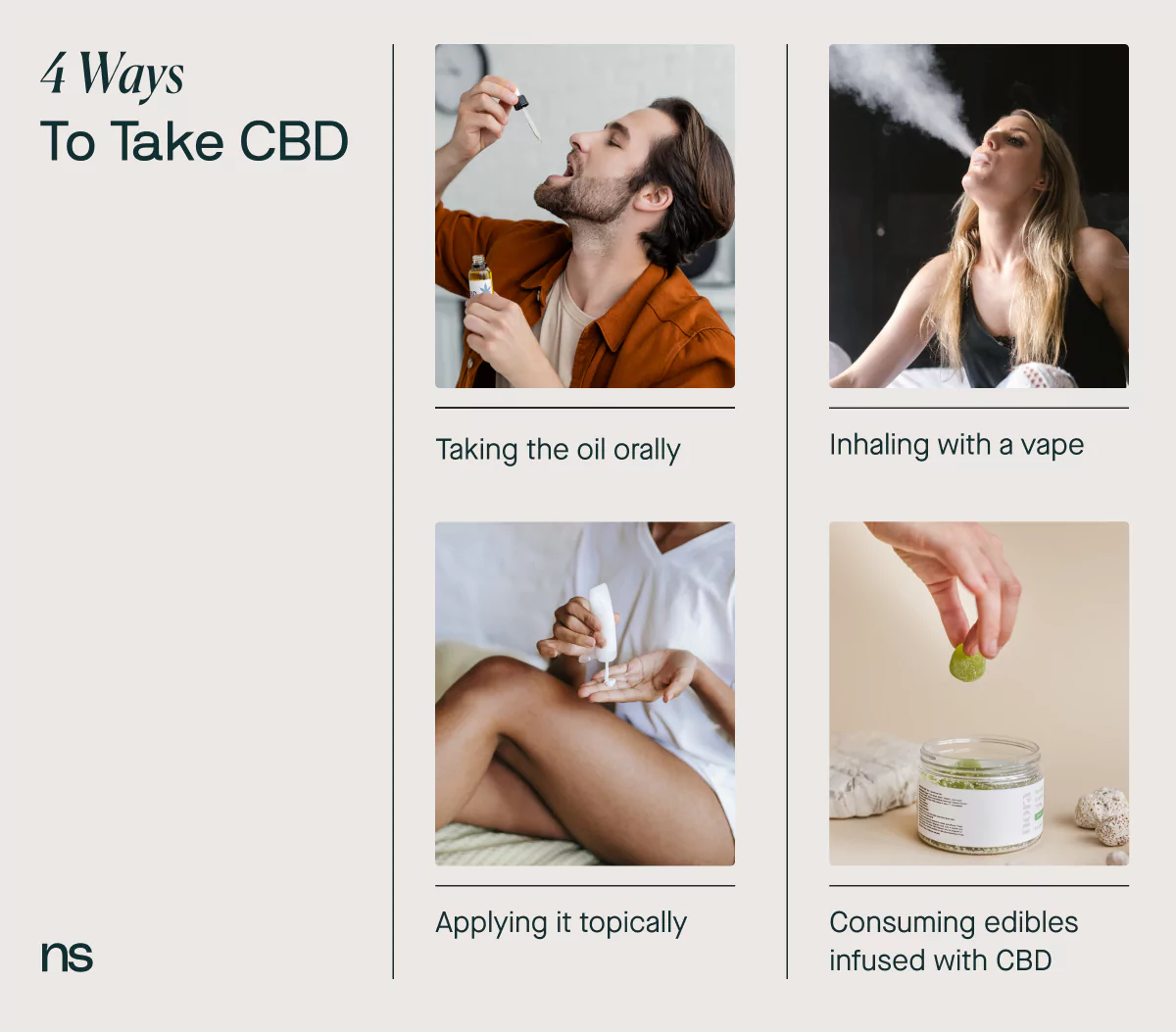Is CBD Good For Inflammation?

Key Takeaways
CBD, or cannabidiol, has experienced a surge in popularity in recent years. In fact, CBD has been publicized to be "good" for anxiety, depression, pain relief, sleep disorders, and even acne treatment.
While scientific research is still emerging, many people are turning to it for potential health benefits and anti-inflammatory effects. So, what is CBD, how exactly does it work, and which is the best CBD to take for inflammation? Read on to find out.
What is CBD?

CBD is a compound found in the cannabis plants. However, unlike the THC compound found in marijuana, CBD does not produce a "high" effect. Instead, it’s commonly used for things like pain relief and relaxation.
Take a peek at these recent statistics:
- 64 percent of CBD users cite pain as their primary reason for using CBD, with anxiety and insomnia being secondary motivations
- 68 percent of CBD users find CBD to be effective
- 33 percent of American adults have used CBD one or more times
There are three types of CBD:
- full-spectrum CBD
- broad spectrum CBD
- CBD isolate
Full-spectrum CBD contains all of the compounds found in the cannabis plant, including CBD, terpenes, flavonoids, essential oils, and other cannabinoids. The THC content should be less than 0.3 percent.
Broad spectrum is similar to full spectrum with the biggest difference being that it is nearly THC free. The purest CBD is found in the isolate form, with all other compounds removed.
Some believe that full-spectrum CBD may provide more benefits due to the entourage effect, but CBD isolate may be preferred for those who want to avoid any trace of THC. CBD is also sold in various forms, including oils, capsules, topical creams and even in food and beverages.
Much research is still ongoing around the medical effects and safety ofCBD.
What Are The Benefits of Taking CBD?

CBD is believed to have potential health benefits such as:
- Reducing anxiety
- Improving sleep
- Pain relief
- Pain management
However, more research is needed before these health claims are fully supported or understood.
CBD’s effects may be as a result of its connection with our bodies’ cannabinoid receptors and the endocannabinoid system. This system influences the function of the central nervous system as well as influences a variety of other signaling chemicals, such as hormones.
Is CBD Legal?
It is important to note that while CBD is legal in many places, regulations and laws surrounding its use can vary. In the United States, CBD derived from hemp and containing less than 0.3 percent THC is legal on a federal level according to the 2018 Farm Bill.
How is CBD Different From Cannabis, Hemp, and THC?
Hemp vs Marijuana
Hemp and marijuana are harvested from different strains of the Cannabis plant. Hemp is part of the Cannabis sativa strain and also grown for food and fiber. It contains less than 0.3 percent THC, but is rich in CBD. Interestingly, hemp seed oil lacks CBD, since the phytocannabinoids are harvested from the flowers of the plant.
The marijuana plant is part of the Cannabis indica strain, which produces THC and CBD. Typically, you’ll find higher amounts of THC in this strain.
CBD vs THC
CBD and THC (tetrahydrocannabinol) are both compounds found in the Cannabis genus and have the same 21-carbon molecular structure. THC is the main psychoactive compound in cannabis, responsible for the "high" feeling when consumed.
CBD, on the other hand, does not produce psychoactive effects and may actually counteract the effects of THC. CBD is often used for its potential therapeutic benefits and anti-inflammatory properties, while THC is primarily used for recreational purposes.
CBD vs Cannabis
CBD and cannabis are not interchangeable terms, though it’s easy to think so. Cannabis is a plant genus that includes various strains such as hemp and marijuana. You can think of cannabis as the umbrella term capturing hemp, marijuana, CBD, and THC, as well as many other cannabinoids.
CBD, on the other hand, is a specific chemical compound found within certain strains of cannabis.
Medical cannabis is now legal in many parts of the United States.
4 Ways to Take CBD Oil

As you’re probably already aware, there are a few different types of CBD that are consumed or applied in distinct ways. As with any new substance you are using for medical purposes, start with a small dose and wait before taking more to avoid accidentally using too much.
Here are four of the most common ways to use CBD, and the supposed benefits of each method:
1) Taking the Oil Orally
CBD oil can be taken orally, either by placing a few drops under the tongue or by adding it to food or drink.
Potential Benefits:
- Easy to administer and measure the dosage.
- Effects can be felt within 15 to 45 minutes and can last for several hours.
- Sublingual administration (under the tongue) allows for faster absorption into the bloodstream.
2) Applying it Topically

Potential Benefits:
- Often used in skincare products such as lotions and balms, topical CBD oil can be applied topically to the skin to help with pain and inflammation.
- May provide localized relief for pain and inflammation.
- May be combined with other beneficial ingredients in skincare products.
The degree of uptake from topical application varies a great deal. This can depend on the xenobiotic physicochemical properties, the formulation and application of the product, and skin conditions.
3) Inhaling it by Smoking
Another form of CBD can be inhaled through a vaporizer or e-cigarette. This method is often used for immediate relief of anxiety or pain, however it may lead to increased inflammation in the lungs.
Potential Benefits:
- The effects are felt almost immediately.
- It can provide quick relief for anxiety, pain, and other symptoms.
4) Consuming Edibles

CBD oil can be added to food or drinks to create edibles such as gummies, chocolate, or beverages.
Potential Benefits:
- A fun and tasty way to take CBD oil. Though keep an eye out for how much sugar might be added and the potential effect that might have on your glucose response!
- Effects of edibles may take longer to kick in but may linger for a longer period.
What the Research Says About CBD and Inflammation
Studies have shown that CBD can reduce inflammation in the body by interacting with the body's endocannabinoid system. The endocannabinoid system plays a crucial role in regulating inflammation and immune responses.
The relationship between CBD and the body's endocannabinoid system is still being researched, but initial findings suggest that CBD could be a promising treatment for various inflammation-related conditions, such as arthritis, irritable bowel syndrome, and multiple sclerosis.
In addition, CBD has been found to have minimal side effects in most cases, making it an attractive alternative to traditional anti-inflammatory medications. However, more research is needed to fully understand the potential benefits and drawbacks of using CBD for inflammation.
What is Inflammation?
Inflammation is a natural response of the body's immune system to fight infections, injuries or cellular harm. It is the initial step for the healing process, often appearing in the body as redness, swelling, heat, and pain.
In most cases, it helps to repair tissue; however, chronic inflammation may influence various diseases such as cancer, heart disease, asthma, and rheumatoid arthritis. Inflammation can stem from disorders such as acute, chronic, or auto-inflammatory, which may damage organ function.
Many factors may influence inflammation including our environment, dietary intake, and other lifestyle habits.
CBD and the Endocannabinoid System (ECS)

The ECS is a biological system that plays a crucial role in regulating and maintaining various physiological processes in the body. These can include things like pain sensation, mood, appetite, and immune response.
When CBD interacts with the ECS, it can help to promote balance and homeostasis in the body. Research suggests that the ECS may be involved in the management of several conditions, such as anxiety disorders and chronic pain.
However, the ECS is also involved in a sensitive conversation that helps regulate hormones and other functions. Regular or chronic exposure to exogenous cannabinoids like CBD may impact these hormones in ways not yet fully understood.
There are two main types of cannabinoid receptors in the ECS, CB1 and CB2. CB1 receptors are primarily found in the brain and nervous system, while CB2 receptors are mainly located in immune cells and peripheral tissues.
Together, these receptors play a vital role in maintaining balance within the body. Ongoing research into the ECS and its interaction with CBD could lead to new treatments for a variety of health conditions. This has led to increased interest in the potential therapeutic effects of CBD for conditions like anxiety, depression, chronic pain, and seizures.
Are There Any Risks When Using CBD?

The long-term effects of taking CBD daily are still unclear. Some health experts caution that more research is needed before CBD can be widely recommended as a treatment option, but the trend towards CBD use is certainly not slowing down anytime soon.
Despite the potential benefits of CBD, it is important to be aware of the possible side effects, and be prepared to address them.
Some of the most common side effects associated with CBD use include:
- Changes in appetite and weight
- Fatigue or drowsiness
- Diarrhea
- Nausea
- Dry mouth
- Dizziness
The FDA states that the dosage and level of intake that trigger risks associated with CBD are not yet fully known. However, it’s known that some possible risks of CBD include liver injury and changes in mood.
CBD can also potentially interact with certain medications, including blood thinners and anti-epileptic drugs. If you have epilepsy, it's important to consult with a healthcare professional if you are taking any medications before using CBD.
What Should You Look For When Purchasing CBD Products?

When purchasing CBD products, look for products that have been third-party tested and have clear labeling indicating the dosage and ingredients. Remember to choose a reputable brand and talk to a healthcare professional before starting to take CBD.
The way CBD affects the body depends on the method of consumption. Oral consumption typically takes longer to take effect and can be less potent than inhaling or applying topically.
Smoking or vaping can have more immediate effects but may also have negative effects on lung health. Topical application is generally used for localized pain or skin conditions.
What Else to Know About CBD
There’s a lot about CBD we don’t know yet; much of its benefits and risks are still being researched for clinical application. Here are a few things to consider before using CBD.
Can CBD Cause A Positive Drug Test Result?
Yes, it is possible for CBD to cause a positive drug test result, particularly if the product contains trace amounts of THC. Use caution when taking CBD if you may be subject to drug testing. Look for products that have been third-party tested and contain no THC.
Final Thoughts: Is CBD for You?

There’s much more to be discovered about CBD and its benefits for long-term wellbeing—but what we currently know seems promising. And while CBD may reduce inflammation in some cases, multiple factors affect how your body functions and heals itself.
As always, seek guidance from a trusted medical professional before using CBD.
Find the right Nutrisense programto turn insight into progress.
Go Beyond Glucose Data with Nutrisense
Your glucose can significantly impact how your body feels and functions. That’s why stable levels are an important factor in supporting overall wellbeing. But viewing glucose isn't enough. Nutrisense, you’ll be able to learn how to use your body's data to make informed lifestyle choices that support healthy living.
One-to-one coaching
Sign up to access insurance-covered video calls to work with a glucose expert: a personal registered dietitian or certified nutritionist who will help tailor your lifestyle and diet to your goals.
Monitor and measure what matters
With the Nutrisense CGM Program, you can monitor your glucose with health tech like glucose biosensors and continuous glucose monitor (CGM)s, and analyze the trends over time with the Nutrisense App. This will help you make the most informed choices about the foods you consume and their impact on your health.
Find your best fit
Ready to take the first step? Start with our quiz to find the right Nutrisense program to help you take control.

Heather is a Registered and Licensed Dietitian Nutritionist (RDN, LDN), subject matter expert, and technical writer, with a master's degree in nutrition science from Bastyr University. She has a specialty in neuroendocrinology and has been working in the field of nutrition—including nutrition research, education, medical writing, and clinical integrative and functional nutrition—for over 15 years.


.webp)

